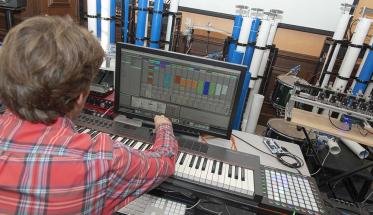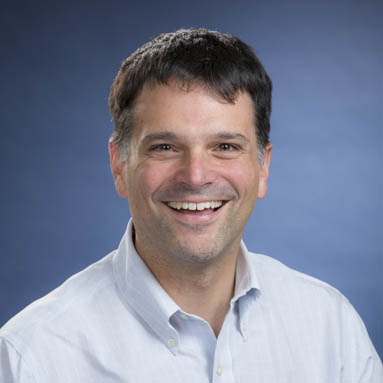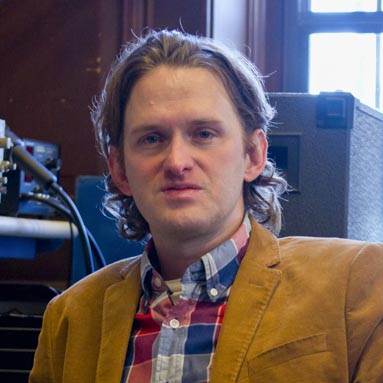“It makes you think about the process of composition,” Barton says, “such as repetition, for example, which provides a trajectory of contours that enables and inspires improvisation.”
The class also explored the technical side of this type of music, from algorithm creation to coding, and the more literary side, such as writing music, and how each influences a robot-human performance.
Similar to the literary nuances of poetry, Cocola says that music, algorithms, coding, and the resulting sound inform each other. “They further our understanding of human expression,” he says. “It’s about our connections, and everyone’s interpretation of it is different.”
The “Artificial Composition” class will be offered again in 2020. Jesse Abeyta ’21, who is majoring in computer science, recommends it to other students.
“‘Artificial Composition’ was a great opportunity to explore the intersection of computing and creativity, which seems mostly absent from the normal computer science curriculum,” Abeyta says. “We were given a great amount of freedom in our essays and projects, so it always felt like we were writing or doing something based on what we were interested in rather than what we had to do.”
Since the class itself was small, Abeyta said his favorite part was engaging in lively discussions and debates on AI, music, and more. “I ended up learning a grab bag of information about music, literature, AI, and humanity in general,” he says. “This was hands down my favorite course at WPI.”
Barton and Cocola hope the class sparked students’ curiosity about how artificial intelligence both reflects and influences our identities and relationships with others.
“We approached AI and creative practice in ways that were both abstract and concrete,” Barton says. “By engaging with those outside of our traditional fields, we were able to identify aspects of the topic that otherwise would have been missed. It was a lesson in the power of collaboration.”
--By Jessica Messier



